Popular on Food52
Continue After Advertisement
15 Comments
Susan K.
March 25, 2015
Just came from a nearby farmer's market. NOTHING was organic so be aware that just because it says farmer's market does not mean it is an organic farm. In fact, since we are still in a long lasting winter in the northeast, all of the food is being shipped in from South America.
Brenda B.
March 25, 2015
Can't. Afford. Organic. No, seriously, I can't. And if you tell me I "can't afford not to," (as Martha Stewart famously tweeted), I will whack you in the face with a bunch of pesticide-tainted celery.
Margit V.
March 23, 2015
P.S. also, look up the EWG's list of the cleanest produce---this may be a bit reassuring, helpful in choices we make.
Margit V.
March 23, 2015
I commented some more on the Hotline. It's important to remember that washing produce is unfortunately no solution because the toxins generally exist throughout the whole fruit or vegetable. Also, local is no guarantee. Talk to the grower to ask about what methods they use. Here in Vermont, many growers use good methods but are not certified organic because it costs so much to get the certification, and they may not be able to meet all the requirements for how produce is handled after it's picked (washing, storing,etc.).
ChefJune
March 22, 2015
Lindsay-Jean, thank you for a fantastic article. I think we cannot be reminded too often how important the food choices we make are.
Peter G.
March 22, 2015
When deciding to buy organic I am always guided two rules: safety and taste. Having spent most of my professional life in environmental business I tend to stick with science when it comes to agriculture (one fact: organic farming is NOT sustainable; we would not be able to feed the world with it and it is more damaging to the environment the traditional one). First, organic vegetables tend to contain significantly higher bacteria count (by order of magnitude, according to some studies). Second, there is no scientific evidence that organic food is richer in nutrients. Third, so far the science cannot prove that traces of today's herbicides and pesticides in our do us any harm (although the can, without us knowing). So if the food genuinely tastes better to you (it does to me in many cases) eat it but wash it very well.
ChefJune
March 22, 2015
Peter, I find the danger of NOT buying organic is that so much of what isn't is tainted by poisonous chemicals such as Roundup. These chemicals were not in the food supply when you and I were growing up, but they are a fact of life now. And they are causing serious harm especially to children whose bodies are forming. Okay, I'll get off my soapbox now. :)
witloof
March 23, 2015
Peter, can you please quote your sources for the claims you make regarding the unsustainability of organic farming, that organic farming is more damaging to the environment than using pesticides, that the bacteria in organic food is harmful, and that regularly consuming toxins is not a cause for concern? Thank you.
trampledbygeese
March 24, 2015
There are definitely problems with the current method of organic farming, especially when it's scaled up and shipped over long distances. Although speaking as a farmer with a bias towards sustainable agriculture, I don't think you've quite put your finger on the real issues.
The first point about bacteria...I would like to learn more about these specific studies you refer to. When they count quantity of bacteria between organic and non, do they simply count all bacteria present? It would be terribly scary to read about how much bacteria occurs in natural farming - unless one takes into account that most of the bacteria in the world is harmless to humans, and a great portion of the rest is not only beneficial, but necessary for human health. There are lots of information on the benefit of bacteria, but I'll recommend Sandor Katz writings in Wild Fermentation and The Art of Fermentation as a primer on the subject.
What's more, many growing and handling techniques in modern, chemical, and/or industrial agriculture can kill off the majority of the bacteria found on foods. With the good and neutral gone, there is room for the unwanted bacteria to move in. Think of like a human gut after a long course of antibiotics - without adding probiotics to the gut system, the 0.1% of bacteria that are left after the antibiotic treatment, usually fill up the empty space and are usually not the invisible beasties that keep us healthy. When we look at the FDA reports on food contamination in /the States, this is one the main problems with our food safety. I'm thinking specifically the dangers of pasteurized apple juice as an example.
Your second point, about nutrition. It's a very difficult place to make an absolute statement either way about organic vs inorganic. My bias is of course in favour of organic, and when grown in a holistic and sustainable way, yes, I side with the studies that suggest organic gives more nutritional value.
However, many of the studies are flawed (both pro and against organic growing as an increase of nutrition). Actually, that's a bit simplistic. The scientific method itself is insufficient for evaluating all the variables in this situation (sorry scientists, it's not your fault, it's just the limits of your discipline). (put simply) For the scientific method to work properly, it needs to be able to isolate one variable - organic growing, to evaluate a simple, and measurable outcome - nutrition. Looks simple enough.
HOWEVER, how do we do that? Do we take seed designed for heavy agricultural inputs like chemical based fertilizers, pesticides, and so forth, and grow them in a field without these inputs? That would certainly do the trick according to the method science gives us - change one variable. Of course, the obvious outcome is achieved. The plants do not do well under organic methods and it is generally accepted that unhealthy plants yield lower nutritional content. Yet, this does not take into account so many other factors that are different between sustainable, organic agriculture (opposed to industrial scale, organic agriculture which is an entirely different kettle of fish we don't need to open up right now).
A few of the variables that need to be taken into account when evaluating organic vs non for nutritional content: Starting with the seed. Not all seed is created equal, there are seeds selected, breed, (and GMOed), for growing well under a heavy input system (chemical farming), and seeds selected for growing under organic systems. The first kind of seeds are selected for uniformity of size, uniformity of ripening, ease of mechanical harvest, good storing and shipping, and looks. They are not selected for competing with weeds, pests, lack of irrigation, &c. Organic seed on the other hand are (often) selected for resistance to pests, fungus, disease, weeds, drought/water tolerance, &c. The plants are designed to perform well under entirely different conditions. An industrial seed is not designed to grow well in an organic field, and of course will weaken, and not produce great quality, high nutritious food. So now we need to adjust our scientific experiment for two variables, kind of seed and chemical usage.
Then we come to other organic practices, like compost, manure, cover crop, beneficial soil fungus, ratio of beneficial insects to pests, the advantage of having some pest insects in the field to naturally cull the plants that are less vital, intercropping, till, no till... it's a long list. Not only do all these factors have a direct effect on nutrition, but taken together make for one heck of a lot of variables to assess when evaluating the one apparently simple question of organic vs non organic growing and how it affects nutrition.
Depending on what answer you want, and who is funding the experiment, it is easy to create a situation that makes the desired result - if one is really interested in the subject, perhaps a critical reading of the study would be more useful than a simple news report. Most libraries provide access to academic papers, or can get in a specific study that peeks your interest.
For more on nutrition and agricultural practices, Michael Pollan or Sally Fallon make for a good read.
Third statement, about pesticides and harm to human health. Again, I would love to read a study that says with absolute certainty that it has no effect whatsoever. The scientific method cannot give us that much certainty on any subject simply again because of it's method. Think about gravity. I drop my pen, it falls. That's my theory. Lots of people try to disprove it, and yet all their pens also fall. This goes on for a few hundred/thousand/million years. Eventually we give up and say, it's a scientific law. We don't declare it a law until enough people try to disprove it and fail. The theory of gravity, even though it's a natural law, is also still a theory awaiting to be disproved.
Not enough people have failed to disprove the theory that chemical additions to agricultural products cause no harm whatsoever to human health. In fact, there is a woeful lack of published studies on the subject - woeful compared to agricultural chemicals and their effects on livestock health for example. Now, humans aren't sheep, but if when I read that additions of chemical x on the pasture reduce the uptake of nutrient y, and I read that there is a correlation between humans nutrition y falling, and the increase of use of chemical x - I get thinking... and then I wonder... and then I look for research between the correlation of x and y and human health... and then I find nothing, or I find studies that were started and their funding ran out... and then I think to myself that from a scientific point of view, one cannot say that chemical x causes no harm to humans. It may not harm people, but then again it may - a scientific point of view would not make either claim without first investigating it to a sufficient degree.
So one cannot say for certainty that additions of herbicides and pesticides cause no harm to humans, at least not until we have more data... and personally, I wonder if we can get enough data to call the theory of no harm to humans by agricultural inputs to be a natural law.
Last of all, something I'm exceptionally passionate about - feeding the world. There have very seldom in history been global food shortages. Even the major famines before the rise of modern agriculture, were simply a food distribution issue. My favourite example of this comes in Diet for a Small Planet, where the author talks about the food shortages in the 1970s, and the distribution problems that caused it. If one bothers to look at history, they can see how much food was actually produced pre-1920s. One looks at those historical yields per acre, and one bothers to look at the substantial increase of yield per acre of sustainable agricultural practices today and it's pretty obvious we can feed the world. Then one looks at the land made inarable by some of the modern agricultural practices - and how quickly the land is being destroyed... one wonders how long industrial agriculture can feed the world.
The real issue with organic agriculture, for me, is when it's done in an unsustainable way. SImply modifying modern farming methods to avoid chemical inputs is not enough to maintain the food supply. Without including other factors that adapt the organic growing system to local conditions, we run the risk of destroying the land. Basically there is no cookie cutter organic template that can be applied university - but I do find it comforting that we, as a population, are becoming aware of how the agricultural processes affect our health and the well being of the planet.
The first point about bacteria...I would like to learn more about these specific studies you refer to. When they count quantity of bacteria between organic and non, do they simply count all bacteria present? It would be terribly scary to read about how much bacteria occurs in natural farming - unless one takes into account that most of the bacteria in the world is harmless to humans, and a great portion of the rest is not only beneficial, but necessary for human health. There are lots of information on the benefit of bacteria, but I'll recommend Sandor Katz writings in Wild Fermentation and The Art of Fermentation as a primer on the subject.
What's more, many growing and handling techniques in modern, chemical, and/or industrial agriculture can kill off the majority of the bacteria found on foods. With the good and neutral gone, there is room for the unwanted bacteria to move in. Think of like a human gut after a long course of antibiotics - without adding probiotics to the gut system, the 0.1% of bacteria that are left after the antibiotic treatment, usually fill up the empty space and are usually not the invisible beasties that keep us healthy. When we look at the FDA reports on food contamination in /the States, this is one the main problems with our food safety. I'm thinking specifically the dangers of pasteurized apple juice as an example.
Your second point, about nutrition. It's a very difficult place to make an absolute statement either way about organic vs inorganic. My bias is of course in favour of organic, and when grown in a holistic and sustainable way, yes, I side with the studies that suggest organic gives more nutritional value.
However, many of the studies are flawed (both pro and against organic growing as an increase of nutrition). Actually, that's a bit simplistic. The scientific method itself is insufficient for evaluating all the variables in this situation (sorry scientists, it's not your fault, it's just the limits of your discipline). (put simply) For the scientific method to work properly, it needs to be able to isolate one variable - organic growing, to evaluate a simple, and measurable outcome - nutrition. Looks simple enough.
HOWEVER, how do we do that? Do we take seed designed for heavy agricultural inputs like chemical based fertilizers, pesticides, and so forth, and grow them in a field without these inputs? That would certainly do the trick according to the method science gives us - change one variable. Of course, the obvious outcome is achieved. The plants do not do well under organic methods and it is generally accepted that unhealthy plants yield lower nutritional content. Yet, this does not take into account so many other factors that are different between sustainable, organic agriculture (opposed to industrial scale, organic agriculture which is an entirely different kettle of fish we don't need to open up right now).
A few of the variables that need to be taken into account when evaluating organic vs non for nutritional content: Starting with the seed. Not all seed is created equal, there are seeds selected, breed, (and GMOed), for growing well under a heavy input system (chemical farming), and seeds selected for growing under organic systems. The first kind of seeds are selected for uniformity of size, uniformity of ripening, ease of mechanical harvest, good storing and shipping, and looks. They are not selected for competing with weeds, pests, lack of irrigation, &c. Organic seed on the other hand are (often) selected for resistance to pests, fungus, disease, weeds, drought/water tolerance, &c. The plants are designed to perform well under entirely different conditions. An industrial seed is not designed to grow well in an organic field, and of course will weaken, and not produce great quality, high nutritious food. So now we need to adjust our scientific experiment for two variables, kind of seed and chemical usage.
Then we come to other organic practices, like compost, manure, cover crop, beneficial soil fungus, ratio of beneficial insects to pests, the advantage of having some pest insects in the field to naturally cull the plants that are less vital, intercropping, till, no till... it's a long list. Not only do all these factors have a direct effect on nutrition, but taken together make for one heck of a lot of variables to assess when evaluating the one apparently simple question of organic vs non organic growing and how it affects nutrition.
Depending on what answer you want, and who is funding the experiment, it is easy to create a situation that makes the desired result - if one is really interested in the subject, perhaps a critical reading of the study would be more useful than a simple news report. Most libraries provide access to academic papers, or can get in a specific study that peeks your interest.
For more on nutrition and agricultural practices, Michael Pollan or Sally Fallon make for a good read.
Third statement, about pesticides and harm to human health. Again, I would love to read a study that says with absolute certainty that it has no effect whatsoever. The scientific method cannot give us that much certainty on any subject simply again because of it's method. Think about gravity. I drop my pen, it falls. That's my theory. Lots of people try to disprove it, and yet all their pens also fall. This goes on for a few hundred/thousand/million years. Eventually we give up and say, it's a scientific law. We don't declare it a law until enough people try to disprove it and fail. The theory of gravity, even though it's a natural law, is also still a theory awaiting to be disproved.
Not enough people have failed to disprove the theory that chemical additions to agricultural products cause no harm whatsoever to human health. In fact, there is a woeful lack of published studies on the subject - woeful compared to agricultural chemicals and their effects on livestock health for example. Now, humans aren't sheep, but if when I read that additions of chemical x on the pasture reduce the uptake of nutrient y, and I read that there is a correlation between humans nutrition y falling, and the increase of use of chemical x - I get thinking... and then I wonder... and then I look for research between the correlation of x and y and human health... and then I find nothing, or I find studies that were started and their funding ran out... and then I think to myself that from a scientific point of view, one cannot say that chemical x causes no harm to humans. It may not harm people, but then again it may - a scientific point of view would not make either claim without first investigating it to a sufficient degree.
So one cannot say for certainty that additions of herbicides and pesticides cause no harm to humans, at least not until we have more data... and personally, I wonder if we can get enough data to call the theory of no harm to humans by agricultural inputs to be a natural law.
Last of all, something I'm exceptionally passionate about - feeding the world. There have very seldom in history been global food shortages. Even the major famines before the rise of modern agriculture, were simply a food distribution issue. My favourite example of this comes in Diet for a Small Planet, where the author talks about the food shortages in the 1970s, and the distribution problems that caused it. If one bothers to look at history, they can see how much food was actually produced pre-1920s. One looks at those historical yields per acre, and one bothers to look at the substantial increase of yield per acre of sustainable agricultural practices today and it's pretty obvious we can feed the world. Then one looks at the land made inarable by some of the modern agricultural practices - and how quickly the land is being destroyed... one wonders how long industrial agriculture can feed the world.
The real issue with organic agriculture, for me, is when it's done in an unsustainable way. SImply modifying modern farming methods to avoid chemical inputs is not enough to maintain the food supply. Without including other factors that adapt the organic growing system to local conditions, we run the risk of destroying the land. Basically there is no cookie cutter organic template that can be applied university - but I do find it comforting that we, as a population, are becoming aware of how the agricultural processes affect our health and the well being of the planet.
placidplaid
March 22, 2015
I wonder. I've gotten to age 60 without going organic. I would like to but can't afford to. Which makes me wonder if you need to be of a certain income level to beat pesticides. I could grow a garden but there is not enough sun on my property. It all gets way to complicated.
Margit V.
March 21, 2015
I eat organic veggies and fruit, and since here in Vermont they are generally very expensive, I try to grow a productive small garden, practicing succession sowing and season extension. And, of course, trying to make sure the soil is as good as I can possibly make it for producing nutritious food. Without my small garden, I would eat far less well.
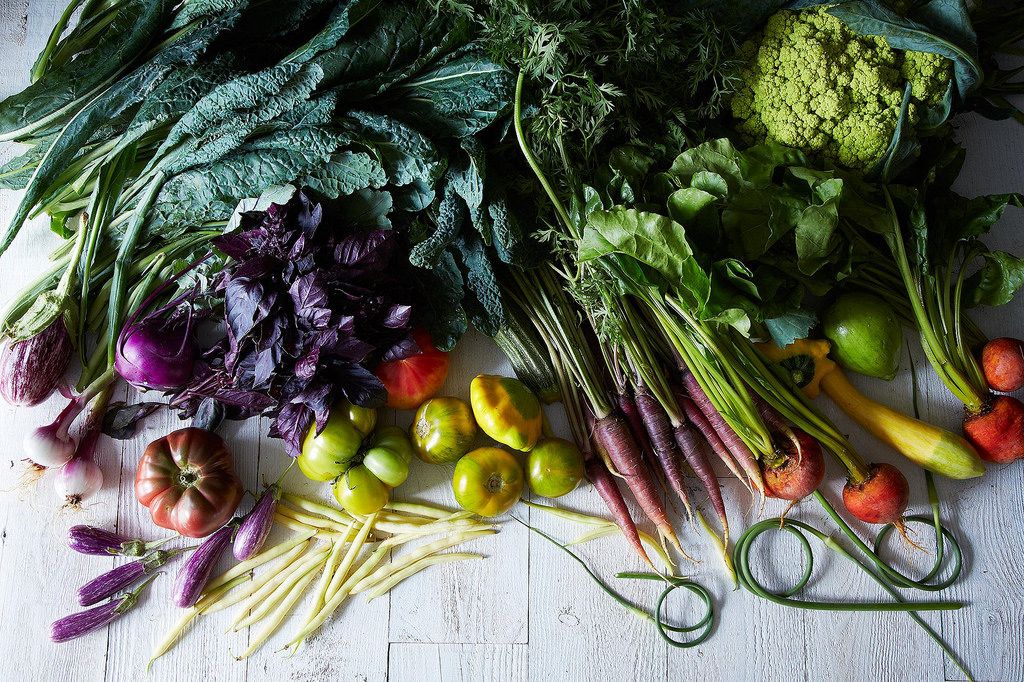
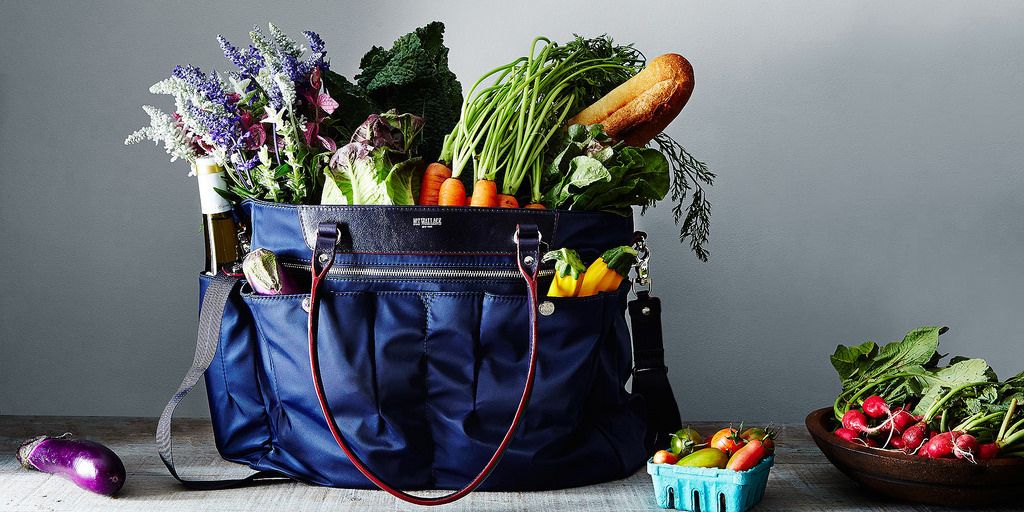
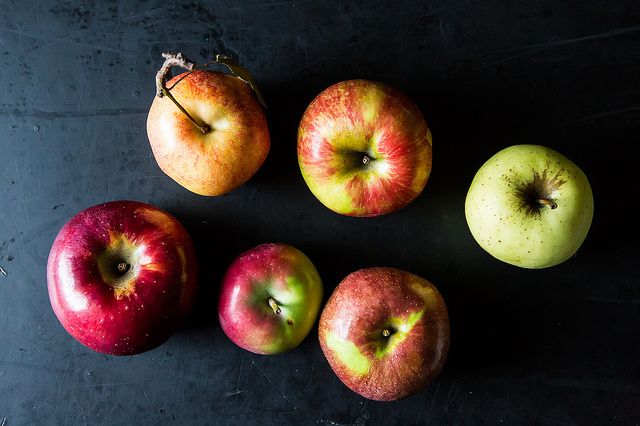
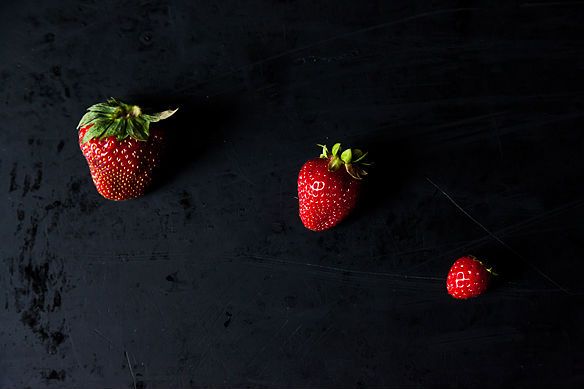
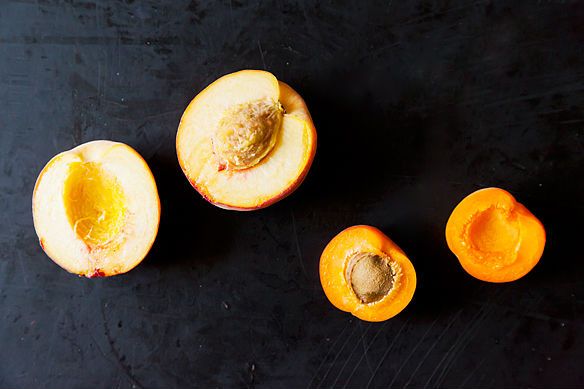
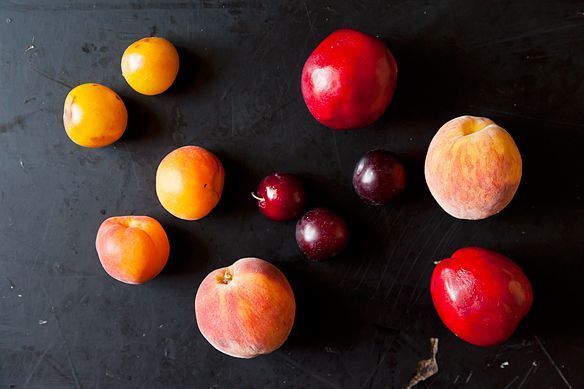
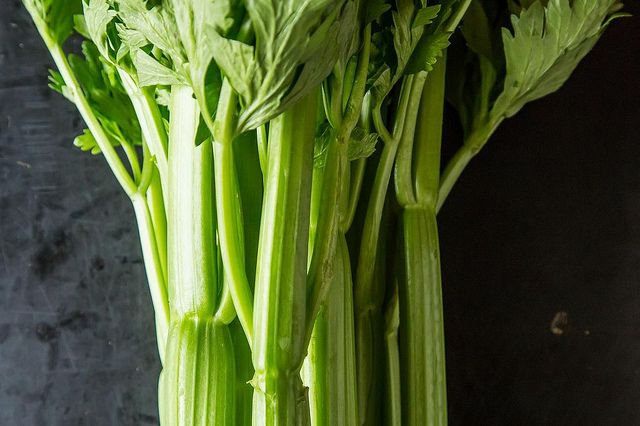
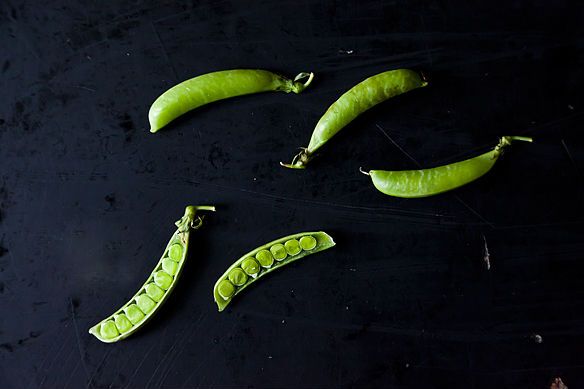
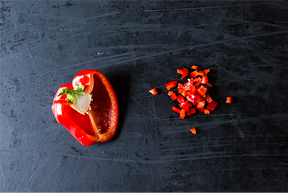
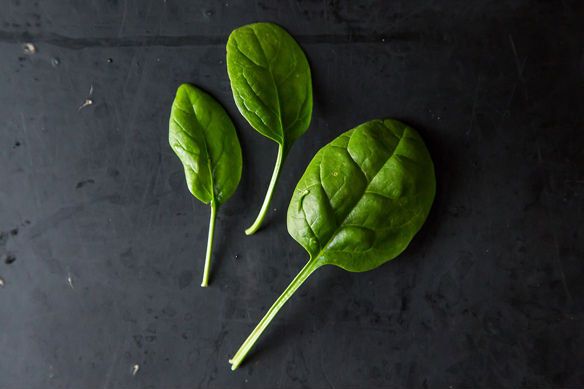
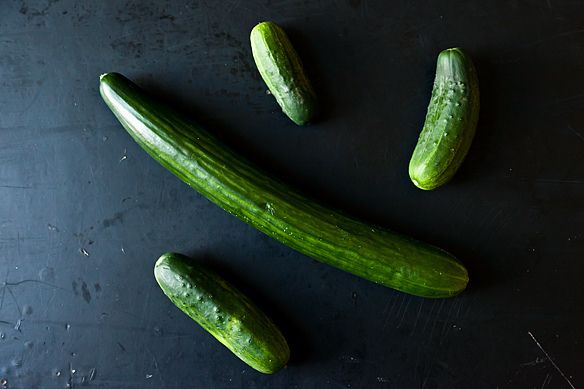
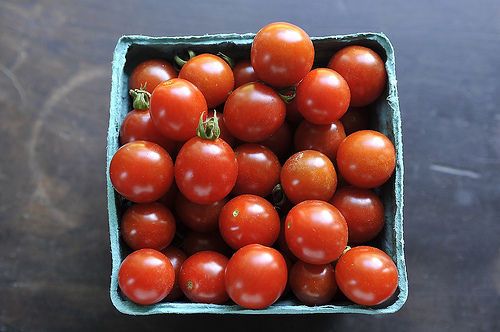
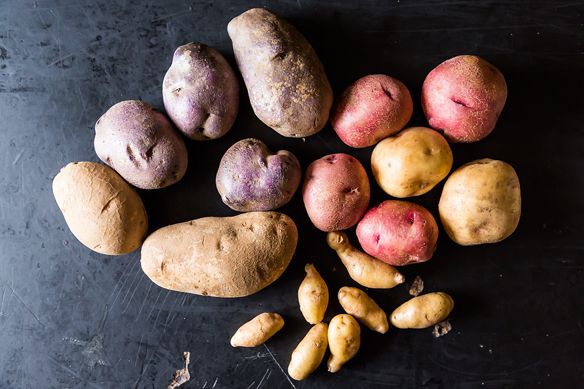
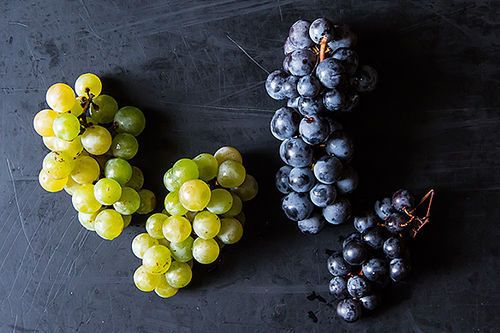
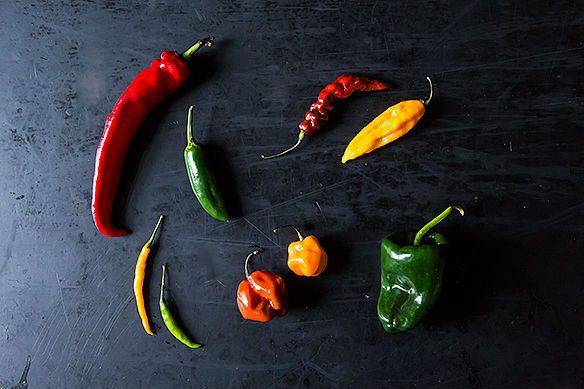
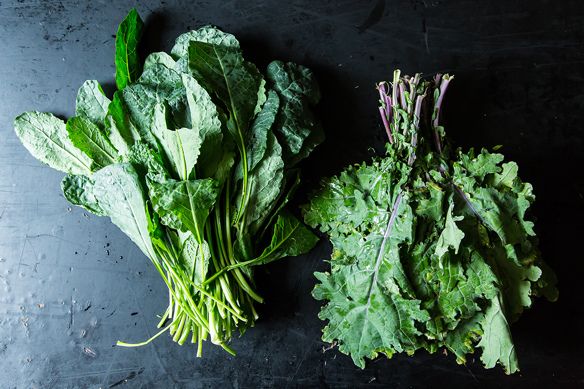

See what other Food52 readers are saying.